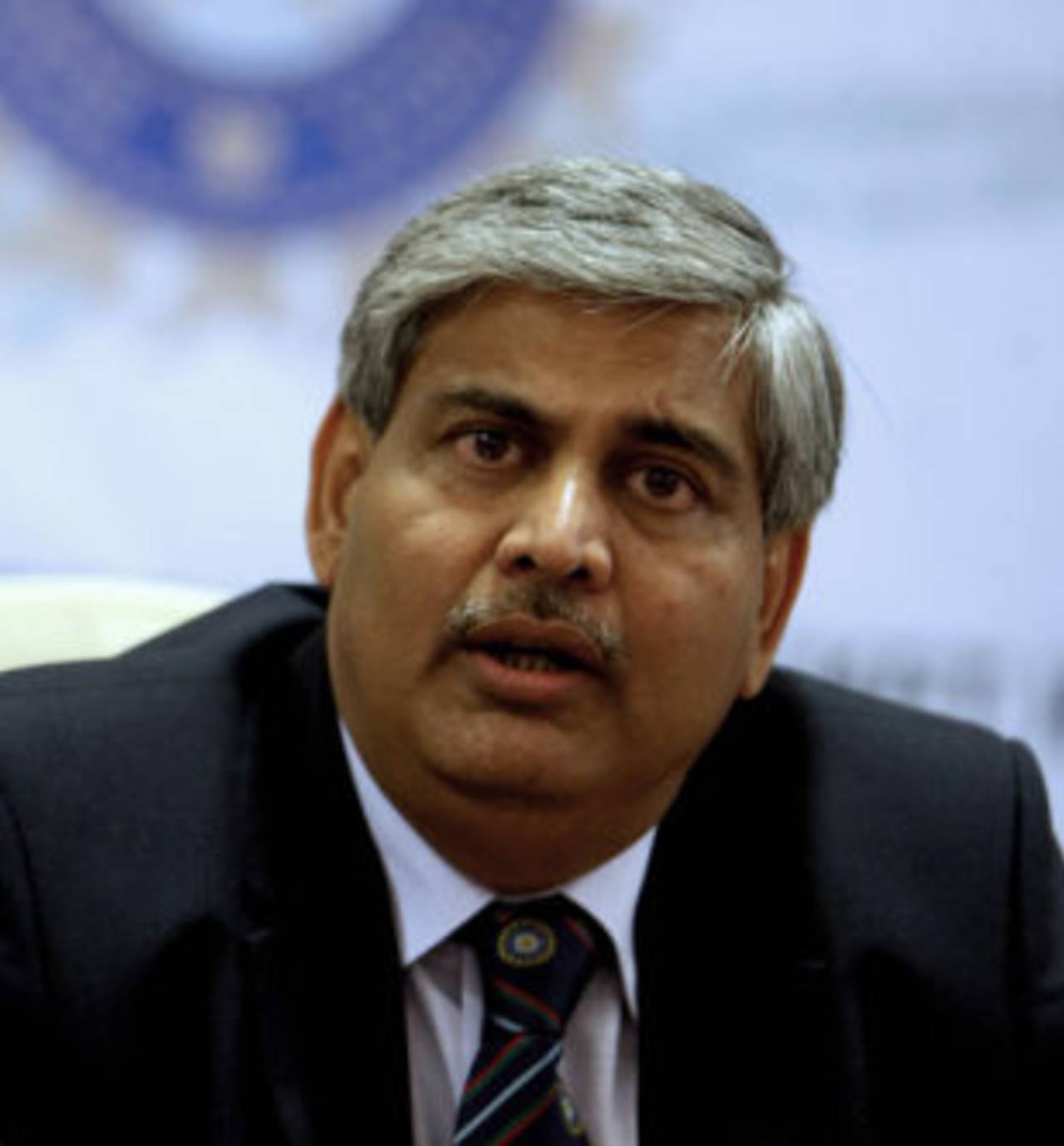Best solution will be worked out - BCCI chief
The Indian board will work with the ICC to come up with a mutually acceptable solution on the issue of adopting new anti-doping norms, Shashank Manohar, the BCCI president, has said
Cricinfo staff
Aug 1, 2009, 4:24 AM

Shashank Manohar: "There is absolutely no confrontation between the BCCI and ICC on the issue and if anyone is trying to convey such a picture, that is wrong" • AFP
The Indian board will work with the ICC to come up with a mutually acceptable solution on the issue of adopting new anti-doping norms, Shashank Manohar, the BCCI president, has said.
Manohar said the BCCI will not adopt a position of confrontation over the issue but added the Indian players' concerns have been conveyed to the ICC. He said the Indian board will formulate its position on the issue during a meeting of its working committee in Mumbai on Sunday.
"We hope to work out the best possible solution that's mutually acceptable," Manohar told Cricinfo. "There is absolutely no confrontation between the BCCI and ICC on the issue and if anyone is trying to convey such a picture, that is wrong. Our players have concerns about the security and privacy aspects regarding certain clauses in the WADA code. We have conveyed these concerns to the ICC and we will sit with them to work out a solution."
According to the ICC, an "overwhelming majority" of players in the testing pool from all countries have agreed to submit to the code, except India.
The 11 Indian players in the ICC's international testing pool, and other international players, are not against the concept of anti-dope testing and are in agreement with the larger aim of the WADA code, which is to ensure a clean sport. However, they are concerned about the 'wherabouts' clause in the amended code, which requires all players in the pool to submit details in advance of their whereabouts for the next three months, even during off-season, to facilitate effective out-of-competition testing.
Yuvraj Singh, one of the cricketers who is required to furnish his whereabouts in advance, expressed reservations. "Our concern is that we play 9-10 months of continuous cricket and when we are not playing we should be given that free time," he said. "We have a meeting tomorrow with the ICC and depending on that we will take a decision."
Apart from privacy and practicality issues, the Indian players in the list, some of whom like MS Dhoni and Sachin Tendulkar have received security threats from terrorist organisations before, have raised questions about the confidentiality and security risks involved in providing whereabouts information in advance. These concerns have been raised earlier by the Indian players before the ICC.
The Indian players have missed the July 31 deadline for submitting the information and are awaiting a meeting between the ICC and BCCI on Sunday to get their concerns addressed on the norms, which prescribe severe penalties in case of default. Some Indian players in the testing pool are also expected to attend the meeting.
Manohar, however, refused to comment on whether the BCCI would let its players be penalised by the ICC, under the WADA code, for missing the first information filing deadline. Three such defaults can lead to a ban from the sport for up to two years. "This is an issue that has to be decided by the BCCI's working committee members on Sunday," Manohar said.
The Federation of International Cricketers' Associations (FICA), of which India is not a member, has warned that if the ICC does not penalise India's players for failing to submit to the anti-doping norms in time, it would ensure that players from all other countries would be relieved from similar obligations.